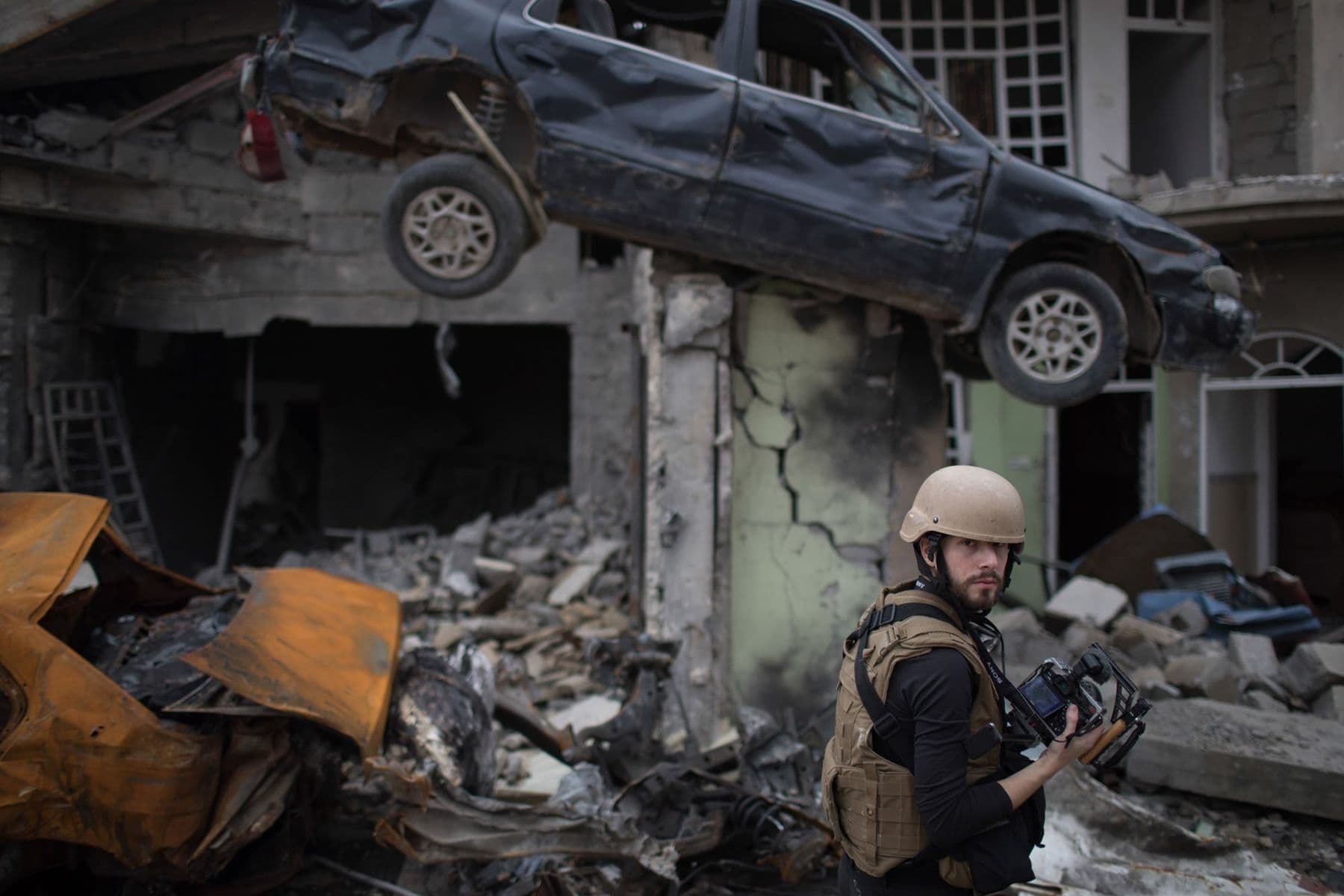Freelance Journalists: Resilient Voices Amid Challenges
Independent journalists face serious threats yet remain crucial to global reporting. This article explores their resilience and the need for support in a turbulent media landscape.

Independent journalists face serious threats yet remain crucial to global reporting. This article explores their resilience and the need for support in a turbulent media landscape.

cover image © Associated press. Photo by Felipe Dana.
At the height of the Balkans war in 1993, I found myself in Belgrade wondering if an anonymous bomb threat to a television station where I was filming was real. The TV station was Studio B, a rare voice of independent journalism in the region.
Studio B’s editor, Milorad Roganovic, shared the bomb threat in a matter of fact way to me and colleague Vaughan Smith. Studio B’s newsroom team simply shrugged. They’d heard it all before. And many of the station’s journalists had been beaten up on the street or received telephone death threats. That was the price they paid to be independent journalists in a conflict that ripped the region apart and killed in excess of 100,000 people. But the journalists of Studio B persisted.
Roganovic, an engaging man with a face that reflected the long hours and strain of resisting constant pressure from the Serbian government, explained their approach: “If we report from the war, from Sarajevo, we put in our own report what the Muslims say, what the Croats say, what the Serbs in Bosnia say and what the foreign press says. Then we say to our viewers, ‘try not to believe anybody, first start with us. There is no one truth; make your own commentaries.’”
Studio B’s independent television was stopped in 1996 when Serbia’s President Slobodan Milosevic, later charged on multiple counts of crimes against humanity and genocide, ordered government soldiers to storm the studios. Yet that was a less violent fate that many other independent journalists in conflict areas suffer and continue to endure.
A few months after our Belgrade trip for the independent production company Frontline News Television, our friend and colleague Rory Peck was killed on 3 October, 1993, caught in the crossfire of the second Moscow Coup. His widow Juliet Peck wanted to mark his legacy. With a group of close friends, she set up the Rory Peck Trust in his memory in 1995.

The Trust is an international organisation that supports freelance newsgatherers. Sadly, such support is now needed more than ever to provide financial and practical help to freelance journalists in numerous ways, including assistant grants and a safety training fund.
The Rory Peck Trust also showcases independent journalism with annual awards. (See 2019 Rory Peck Awards) This year the stories were worldwide; from Syria covering the final flight of ISIS, another telling the survivor stories of women and children fleeing the self declared caliphate. The little-covered armed conflict in Nicaragua was highlighted as well as features about doctors battling malaria in Sierra Leone and stories of the migrants who have disappeared after leaving their home countries in search of safety.

One of the winners was Kenyan documentary maker, Peter Murimi, for his moving feature Suicide Stories: Are Kenyan Men in Crisis? Commissioned by the BBC, it was a story that the mainstream media wasn’t covering. (Click here to see Peter’s report)
In Kenya, the large media houses which dominate are largely dependent on advertising from the government, which can mean self-censoring. It also hinders independent views. Peter Murimi points out that “we need open landscapes to do what we want. Young journalists who freelance must self fund. ‘Suicide Stories’ started from an idea in December 2017. I saw every week news articles about men taking their lives, then researched for several months, talking to families, talking to local police. It was a lot of time to invest for a 12-minute story.”
Peter’s feature had a long—and unfunded– gestation period. Suicide Stories was eventually commissioned and broadcast 18 months after he began.

Worldwide, many independent journalists have turned to YouTube or blogging to tell their stories but other voices have been silenced. According to Reporters Without Borders, nearly 800 journalists and media workers have been killed since 2006. Many other journalists have been forced into exile to escape governments or militias who regard independent journalists as threats. Other journalists have been imprisoned.

Yet increasingly, for many news stories and international locations, freelance journalists are the only independent voice. The current conflicts in Syria, Iraq and Yemen are only the most recent ones where freelance and local journalists provide the bulk of the coverage.

Vaughan Smith, the founder of the Frontline Club in London, a gathering place for journalists says many news organisations have “shed staff and closed international bureaus. Consequently the role of freelance and local journalists in covering difficult and dangerous stories has expanded greatly.” The Frontline Freelance Register, which Smith started, supports these independent voices. It helps provide them with a collective voice — another welcome support. (The Frontline Club is a Global Geneva partner).
In an age when sophisticated misinformation and fake news has become increasingly invasive, independent voices must be empowered. They are necessary for a free and informed public so choices of citizens and governments can be make choices based on knowledge. The role of independent journalists has never been so vital.
Tira Shubart is a Trustee of the Rory Peck Trust and freelance journalist based in London, See www.rorypecktrust.org
You can support freelance journalists by donating to the Rory Peck Trust or becoming a patron.